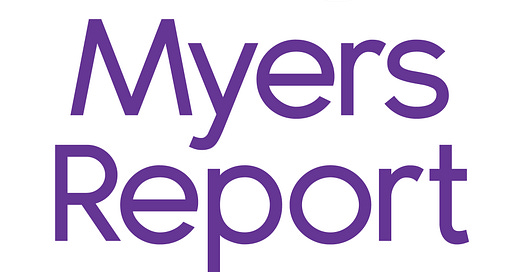The Future of Commemorative Heritage and History Months: Is Federal Recognition at Risk?
Federally supported diversity observances have their roots in legislative action, presidential proclamations, and advocacy from historically marginalized communities.
As political movements gain traction in dismantling Diversity, Equity, and Inclusion (DEI) programs at the federal and state levels, the question arises: Could federally recognized diversity months—such as Black History Month, Hispanic Heritage Month, and Pride Month—be next in line for elimination? Given the increasing pushback against DEI policies in public institutions, corporations, and government agencies, it is plausible that an executive order or congressional action could target the federal support behind these cultural commemorations.
How Diversity Months Became Federally Recognized
Federally supported diversity observances have their roots in legislative action, presidential proclamations, and advocacy from historically marginalized communities. For example:
Black History Month (February) was officially recognized in 1976 when President Gerald Ford urged Americans to celebrate the contributions of Black Americans to the nation.
Hispanic Heritage Month (September 15 – October 15) was established by law in 1988 (Public Law 100-402) after first being observed as a week-long celebration in 1968.
Pride Month (June) has been recognized through presidential proclamations since Bill Clinton’s administration in 1999.
Asian American and Pacific Islander Heritage Month (May) and Women’s History Month (March) were formalized through congressional action in 1992 and 1987, respectively.
National Disability Employment Awareness Month (October) was officially established in 1988 to promote employment opportunities and inclusion for individuals with disabilities.
Native American Heritage Month (November) was first recognized in 1990 under President George H.W. Bush’s administration to honor the contributions of Indigenous peoples in the U.S.
Martin Luther King Jr. Day (January, third Monday) was signed into law as a federal holiday in 1983 and serves as a national observance of civil rights advocacy and service.
These observances, though not national holidays (except for MLK Day), are endorsed through federal agency programs, educational initiatives, and public awareness campaigns. They serve to highlight the historical and cultural contributions of diverse communities and reaffirm the government’s commitment to inclusion. However, as political opposition to DEI expands, these recognitions may face challenges.
How These Recognitions Could Be Eliminated
The unwinding of federally recognized diversity observances could occur through multiple legal and procedural mechanisms:
Executive Orders: President Trump could issue an executive order rescinding official federal recognition of these commemorations, much like how in his first term he rescinded various DEI-focused executive orders established under the Obama administration.
Congressional Legislation: Congress could introduce and pass legislation that explicitly eliminates funding for federal agencies to commemorate these observances, including funding cuts for educational events, public messaging, and government-backed celebrations.
Defunding Federal Programs: Similar to the approach taken against DEI programs at universities and corporations, Congress or individual states could pass measures prohibiting government agencies from allocating funds to recognize diversity observances, effectively limiting their visibility and impact.
State-Level Precedents: Republican-led states have already passed laws restricting DEI initiatives in higher education and corporate environments. These state-level bans could serve as a framework for national policies targeting diversity recognitions at the federal level.
Judicial Challenges: Lawsuits could be filed arguing that federal recognition of diversity months constitutes government endorsement of specific identity groups, leading to potential legal rulings that limit or end official support.
Preventative Measures to Protect Diversity Observances
To counter these potential rollbacks, advocates and policymakers can take proactive steps:
Codify Recognition Through Legislation: Congress can pass laws explicitly protecting these observances from executive or administrative removal, similar to the legislative protections granted to national holidays. Unlikely in the current Congress.
Public Awareness Campaigns: Grassroots movements, non-profit organizations, and corporate allies can amplify public support to demonstrate the broad cultural and economic benefits of maintaining these observances. Corporate support is unlikely and non-profit organizations have greater concerns.
Corporate and Institutional Support: Even if federal support wanes, private sector leadership can continue recognizing and promoting these months, maintaining visibility despite political shifts. Again, unlikely in the current political climate.
Judicial and Legal Challenges: Advocacy groups could preemptively file legal challenges arguing that eliminating these observances constitutes discrimination and violates constitutional protections. Again, probably “bigger fish to fry.”
Bipartisan Advocacy: Encouraging moderate policymakers from both parties to support these observances can help shield them from becoming purely partisan targets. Moderate policymakers on the right???
Implications of Eliminating Diversity Recognitions
Should federal recognition of diversity months be rescinded, the consequences would be far-reaching:
Reduced National Visibility: Without federal proclamations and government-backed initiatives, these observances would lose a key platform, diminishing public awareness of the histories and contributions of diverse communities.
Impact on Federal Employees and Agencies: Many government agencies use these months to provide diversity training and educational resources. Eliminating them could curtail such programs.
Weakened DEI Initiatives: Without government-endorsed observances, private institutions and schools may also pull back their own recognition efforts.
Economic Impact: Companies that align their marketing and outreach efforts with diversity months may scale back efforts, impacting businesses that benefit from cultural events and campaigns.
Erosion of Historical Acknowledgment: The removal of federal recognition would signal a step backward in the acknowledgment of systemic inequalities and historical contributions from marginalized groups.
The current political landscape suggests that diversity months will become a target in the broader effort to dismantle DEI initiatives. While no formal attempts have yet been made to rescind these recognitions, the precedent set by legislative rollbacks on DEI funding and programs makes this scenario highly plausible. Are policymakers, advocates, and the public inclined to mobilize in support of their continued recognition? Is ensuring their permanence in federal law, sustaining corporate engagement, and fostering widespread public support a viable scenario for resisting politically motivated eliminations?
As the political climate continues to devolve, the future of these diversity months may serve as a bellwether for the broader trajectory of inclusion efforts in the United States. The question remains: Will these observances endure as pillars of national recognition, or will they become casualties of shifting political priorities?



